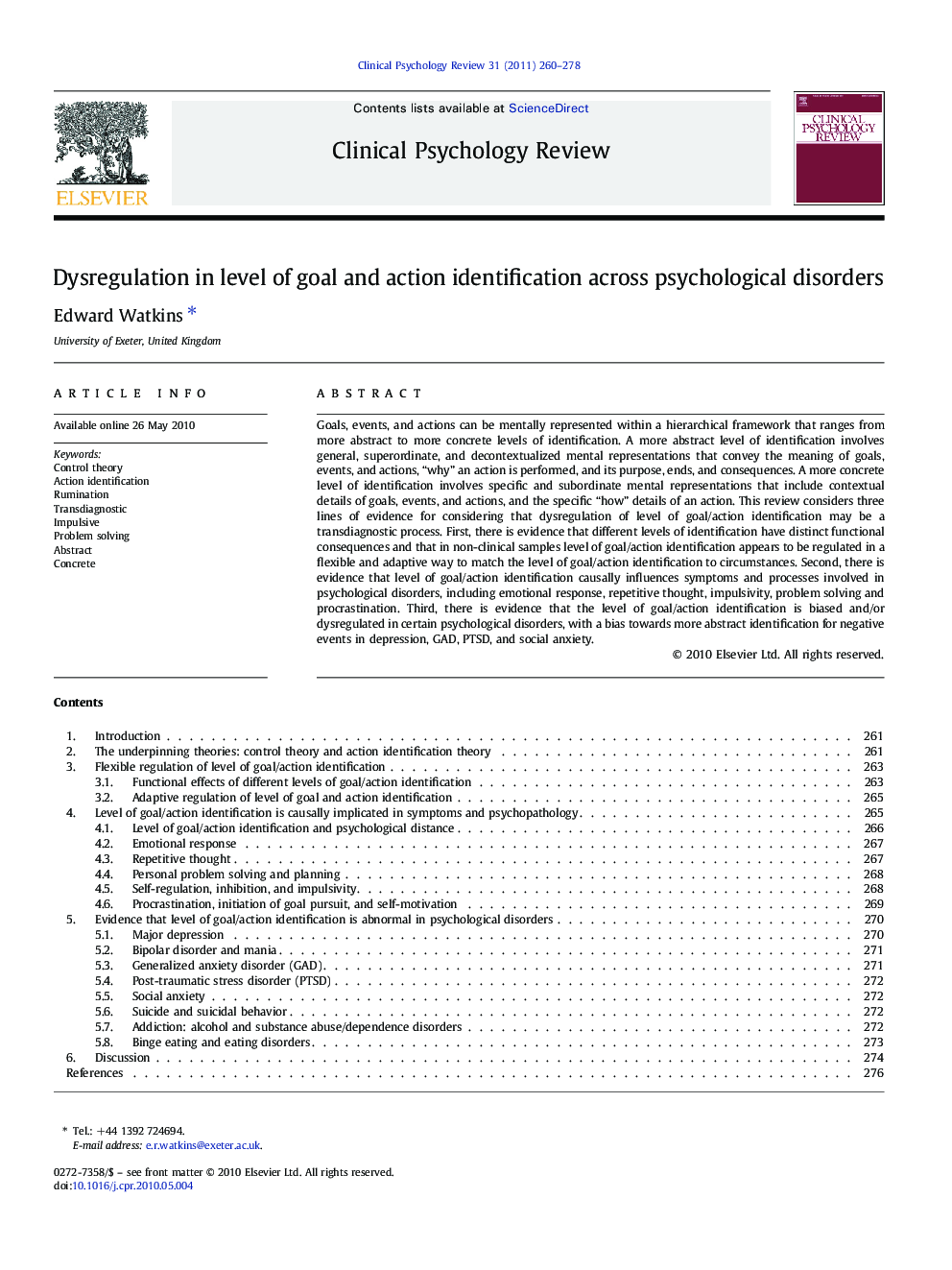| کد مقاله | کد نشریه | سال انتشار | مقاله انگلیسی | نسخه تمام متن |
|---|---|---|---|---|
| 10445721 | 916575 | 2011 | 19 صفحه PDF | دانلود رایگان |
عنوان انگلیسی مقاله ISI
Dysregulation in level of goal and action identification across psychological disorders
دانلود مقاله + سفارش ترجمه
دانلود مقاله ISI انگلیسی
رایگان برای ایرانیان
کلمات کلیدی
موضوعات مرتبط
علوم پزشکی و سلامت
پزشکی و دندانپزشکی
روانپزشکی و بهداشت روانی
پیش نمایش صفحه اول مقاله

چکیده انگلیسی
Goals, events, and actions can be mentally represented within a hierarchical framework that ranges from more abstract to more concrete levels of identification. A more abstract level of identification involves general, superordinate, and decontextualized mental representations that convey the meaning of goals, events, and actions, “why” an action is performed, and its purpose, ends, and consequences. A more concrete level of identification involves specific and subordinate mental representations that include contextual details of goals, events, and actions, and the specific “how” details of an action. This review considers three lines of evidence for considering that dysregulation of level of goal/action identification may be a transdiagnostic process. First, there is evidence that different levels of identification have distinct functional consequences and that in non-clinical samples level of goal/action identification appears to be regulated in a flexible and adaptive way to match the level of goal/action identification to circumstances. Second, there is evidence that level of goal/action identification causally influences symptoms and processes involved in psychological disorders, including emotional response, repetitive thought, impulsivity, problem solving and procrastination. Third, there is evidence that the level of goal/action identification is biased and/or dysregulated in certain psychological disorders, with a bias towards more abstract identification for negative events in depression, GAD, PTSD, and social anxiety.
ناشر
Database: Elsevier - ScienceDirect (ساینس دایرکت)
Journal: Clinical Psychology Review - Volume 31, Issue 2, March 2011, Pages 260-278
Journal: Clinical Psychology Review - Volume 31, Issue 2, March 2011, Pages 260-278
نویسندگان
Edward Watkins,